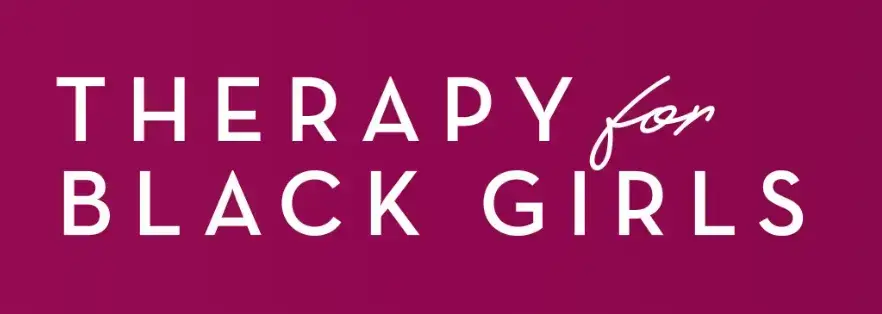Relationship Compatibility Based on Personality Traits
Can Personality Traits serve as a predictor for Relationship Compatibility?
Research shows that personality traits can play a significant role in predicting relationship compatibility (to an extent!). Understanding personality traits not only helps individuals understand the qualities for relationship compatibility, but also provides valuable insights into potential areas of conflict. In this blog, we’ll explore how personality traits, particularly the Big Five, impact relationships and how knowing these can strengthen or weaken the bonds between partners.
The Big Five Personality Traits &
Relationship Compatibility
The Big Five personality traits are a widely recognized framework for understanding human personality. These five traits—openness, conscientiousness, extroversion, agreeableness, and neuroticism—each influence how we behave in relationships. From communication styles to emotional reactions, the Big Five provide a roadmap to predicting how two people might interact in a romantic partnership.
OPENNESS:
The Predictor of Flexibility & Communication
Openness refers to the extent to which a person is open to new experiences, ideas, and creative problem-solving. In relationships, individuals high in openness tend to be more adaptable, receptive to change, and willing to communicate openly with their partners. This can foster a dynamic where both partners feel heard and valued.
For example, a person high in openness might be more willing to explore new relationship norms, compromise on differing opinions, or even work through conflicts creatively. In contrast, someone low in openness may struggle with change, preferring routines and fixed beliefs, which can create tension if their partner is more adventurous or flexible.

CONSCIENTIOUSNESS:
The Key to Reliability & Commitment
Conscientiousness is characterized by being responsible, organized, and goal-oriented. In a relationship, conscientious partners are often seen as reliable and committed. These individuals are typically focused on maintaining stability and order, which is crucial for long-term relationships.
Partners high in conscientiousness often prioritize their commitments, ensuring they keep promises and work diligently to maintain harmony in the relationship. They are also more likely to be organized in their approach to relationship challenges, such as managing finances, household tasks, or parenting.
However, relationships where one partner is lower in conscientiousness may experience conflict over issues such as responsibility or differing approaches to long-term planning. For example, a highly conscientious individual may feel frustrated by a partner’s more laid-back or disorganized approach to life.
EXTROVERSION VS INTROVERSION:
Balancing Social Needs for relationship compatibility
Extroversion refers to how outgoing and social a person is, while introversion describes someone who prefers solitude or smaller social settings. In relationships, extroverted individuals often seek out more social engagement, whether that be through parties, events, or maintaining a wide circle of friends.
For extroverts, a relationship is often strengthened by shared social experiences, and they may feel energized by spending time with others. Introverts, on the other hand, might prioritize deep, one-on-one interactions and feel drained by large social gatherings.
Conflict can arise when extroverts and introverts are paired together, as their social needs may differ. Extroverts may feel neglected if their introverted partner prefers quiet time, while introverts might feel overwhelmed by the extrovert’s desire for social activity. However, couples who recognize and respect these differences can balance each other, leading to a complementary dynamic.
AGREEABLENESS:
The Predictor of Harmony & Conflict Resolution
Agreeableness refers to a person’s tendency to be compassionate, cooperative, and empathetic. In relationships, individuals who score high in agreeableness tend to be more focused on creating harmony and avoiding conflict. They are more likely to compromise, listen to their partner’s needs, and act with consideration.
People who are high in agreeableness are typically great at resolving conflicts because they prioritize peace over being right. This trait can help create a nurturing environment in which both partners feel valued and understood. However, if one partner is low in agreeableness, they may come off as stubborn or less willing to meet their partner halfway, which can lead to tension.
While agreeableness is often associated with positivity, too much of it can sometimes lead to one partner neglecting their own needs to keep the peace. Striking a balance between self-advocacy and harmony is essential in these cases.
NEUROTICISM:
How Emotional Stability Affects Relationship Health
Neuroticism is characterized by emotional instability and a tendency to experience negative emotions such as anxiety, anger, or depression. In relationships, individuals with high levels of neuroticism often face challenges, as they may be more reactive to stress and prone to emotional outbursts.
Neuroticism can lead to frequent conflicts and misunderstandings in relationships. Partners with this trait might feel insecure, misinterpret their partner’s actions, or be more sensitive to perceived slights. This can create a cycle of tension that affects the overall health of the relationship.
However, partners can learn to manage neurotic tendencies by practicing emotional regulation, seeking therapy, or improving communication skills. It’s also beneficial for partners of highly neurotic individuals to practice patience and provide reassurance to help stabilize the relationship.
Attachment Styles Interaction with Personality Traits & Relationship Compatibility
Attachment theory suggests that people develop specific attachment styles based on their early relationships with caregivers. These styles—secure, anxious, avoidant, and disorganized—significantly affect how individuals behave in adult romantic relationships. When combined with personality traits, attachment styles can either enhance relationship harmony or contribute to conflict.
For example, a person with a secure attachment style and high agreeableness is likely to enjoy a stable, healthy relationship. In contrast, an avoidant individual paired with a highly neurotic partner may experience significant challenges due to conflicting emotional needs.
How Avoidant Individuals May Clash with High Neuroticism Partners
Avoidant attachment is characterized by a tendency to distance oneself emotionally from others. This can be problematic when paired with a partner who scores high in neuroticism, as these individuals often seek constant reassurance and emotional connection.
In such a dynamic, the avoidant partner may feel overwhelmed by their partner’s emotional needs, leading them to pull away further. Meanwhile, the neurotic partner may interpret this distancing as rejection, triggering anxiety and increasing the likelihood of conflict.
This type of pairing often results in a push-pull dynamic, where neither partner’s needs are fully met. Over time, this can lead to frustration and resentment. However, recognizing these traits and working on communication can help partners better understand and support each other.
Secure Attachment & High Agreeableness: A Perfect Match?
Individuals with a secure attachment style tend to have healthier relationships because they are comfortable with intimacy, trust, and relying on their partners. When paired with someone who is highly agreeable, this combination often results in a harmonious and stable relationship.
Agreeableness, as mentioned earlier, is linked to empathy and cooperation, making it easier for these individuals to navigate relationship challenges. Secure attachment allows partners to feel emotionally safe, and high agreeableness ensures that both parties are willing to work together toward mutual happiness.
This combination is often seen as a “perfect match” because it fosters a relationship built on trust, understanding, and emotional stability. These couples are typically able to resolve conflicts calmly and ensure that both partners feel valued and loved.
How to Use Personality Insights to Improve Relationships
Understanding your personality traits and those of your partner can be a powerful tool for improving your relationship. Self-awareness is key to navigating potential conflicts and enhancing emotional intimacy. By recognizing how traits influence behavior, couples can anticipate areas of friction and take proactive steps to avoid misunderstandings.
For example, if you know that you are prone to neuroticism, you can focus on developing better emotional regulation techniques. Similarly, if your partner tends to be low in agreeableness, you can work together to improve communication and conflict resolution skills.
Strategies for Conflict Resolution Based on Personality
Each personality trait has specific strengths and weaknesses that influence how individuals approach conflict. To resolve conflicts effectively, couples should tailor their strategies to their respective traits.
- Openness: Partners high in openness should focus on creative solutions and maintaining an open mind during disagreements.
- Conscientiousness: These individuals should set clear goals for conflict resolution and ensure that both partners are committed to finding a solution.
- Extroversion vs. Introversion: Extroverts may need to give introverts space during conflict, while introverts should strive to communicate their feelings openly.
- Agreeableness: High-agreeableness individuals should ensure they aren’t sacrificing their own needs to avoid conflict.
- Neuroticism: Neurotic individuals should work on managing emotional triggers and seek reassurance in a healthy, non-demanding way.
Improving Relationships by Fostering Complementarity
In relationships where partners have different or even opposing personality traits, fostering complementarity can improve compatibility. Instead of viewing these differences as obstacles, couples can learn to appreciate how their traits balance each other.
For example, an extroverted partner can encourage an introverted partner to be more social, while the introvert can help the extrovert appreciate solitude and introspection. Similarly, a highly conscientious individual can provide structure in areas where their less organized partner may struggle.
By recognizing these complementary traits, couples can strengthen their relationship and build a more balanced, harmonious dynamic.
Ready to Start Therapy?

Frequently Asked Questions
About Online Therapy at Mind by Design Counseling
Where are you located? I need a therapist near me
We are fully online, which means that your therapy sessions will be help via video call on our HIPAA compliant Platform. Anyone in New Jersey can access our therapy services
How do I get started as a new client?
New Clients can reach out to us directly via call, text or email here:
Does my insurance cover my visits?
We provide”Courtesy Billing” for clients who are using the Out-of-network insurance benefits.
Our Insurance Page shares a small blurb about Why We Left Insurance Panels
What are out-of-network benefits?
When using OON benefits, patients typically pay the full cost of the treatment upfront and then file a claim with their insurance company for reimbursement. The amount of reimbursement can vary depending on the plan, but it can sometimes be as high as 90%. Call your insurance to see if you have OON benefits or click here to call us and we can check for you!
Is Online Therapy As Effective As In-Person Therapy?
Online therapy is essentially face-to-face counseling, just conducted remotely. Studies show that tele-therapy is as effective as traditional counseling. Professional organizations and state governments recognize its benefits and have set regulations for it. However, like any therapy, its success in achieving your goals isn’t guaranteed. It’s important to discuss with your therapist whether tele-therapy is working for you.
How Should I Prepare for My First Session?
Showing up is all that you need to do! But if you really want to get the most out of session, it could help to take some time to think about what you want from therapy. It helps to write down your goals, questions you have or things that you feel are important to share.
Do you offer traditional talk therapy?
of course! though we have some unconventional therapy approaches, we are rooted in evidenced based practices. Talk therapy is a major player in the therapy room! See What we Treat and Integrative Services for more information
Is Virtual Counseling Suitable for Everyone?
Online therapy might not be as effective for individuals with chronic suicidal thoughts, severe trauma, significant mental health history, or those recently in intensive care. Such cases often benefit more from traditional, in-person counseling. We’ll help you decide if our online services are right for you during your intake and evaluation.
Can I Change Therapists If I'm Not Happy?
Yes, you can switch therapists to another provider within the practice, or we can provide you a referral if preferred. We want to ensure that your time and effort are well spent, and that you are getting the relief you need, that’s why we work collaboratively with each other in the practice, as well as outside therapists who we know and trust.
How Do I Know If Therapy Is Helping?
You should feel like you’re making progress. Signs it’s working include:
- Feeling comfortable talking to your therapist
- Your therapist respects boundaries
- You’re moving towards your goals
- You feel listened to
You’re doing better in life - Your self-esteem is getting better
What is your cancellation policy?
We ask that clients provide at least 24 hours notice in the event that they need to cancel to avoid the 50% cancellation fee. we understand that life happens and do our best to be flexible & reschedule.
What Geographic Areas Are Served?
Currently, we serve clients in New Jersey and are expanding to other states as telehealth laws evolve. While telehealth offers the convenience of attending sessions from anywhere, state laws require clients to be in-state during their session.
Is Online Therapy Easy to Use for Non-Tech-Savvy People?
Yes, it’s pretty simple to access sessions. You’ll need basic internet skills, such as opening and visiting the patient link sent to you via email. It’s similar to video chatting like Facetime or Zoom. We can also walk you through it on the phone the first time to ensure a strong connection
What Questions Should I Ask My New Therapist?
Feel free to ask anything. Some good questions are:
- How often will we meet?
- What do you specialize in?
- What experience do you have with my issue?
- What outcomes can I expect?
- How will I know I’m progressing?
- How long do you usually work with clients?
- How will we set my treatment goals?
What is the difference between associate therapists & fully licensed therapists?
Our Qualifications:
Our founder, Rebecca Sidoti, is a highly qualified, state-licensed therapist and supervisor with extensive training in anxiety related disorders and innovative treatment such as Ketamine Therapy. Mind by Design Counseling adheres to standards set by the our governing counseling boards.
To see each providers credentials, training and licenses, visit our “Meet the Therapists” Page to learn more.
- LAC/LSW are therapists who may practice clinical work under the supervision of a fully licensed therapist.
- LPC/LCSW are therapists who have completed the necessary clinical hours post-graduation under supervision and can practice clinical work independently.













